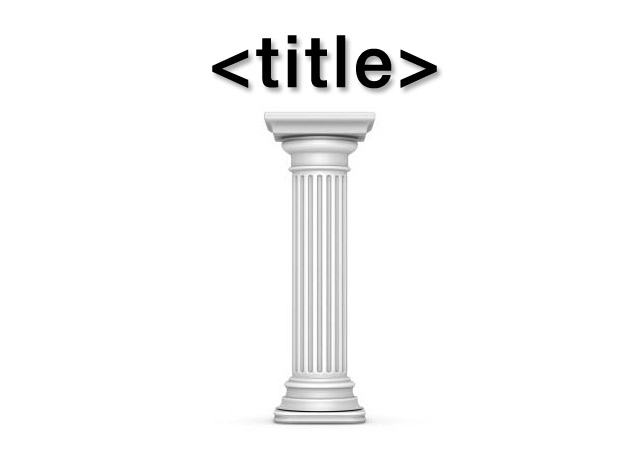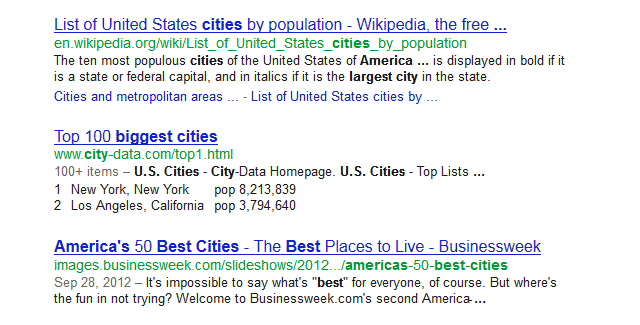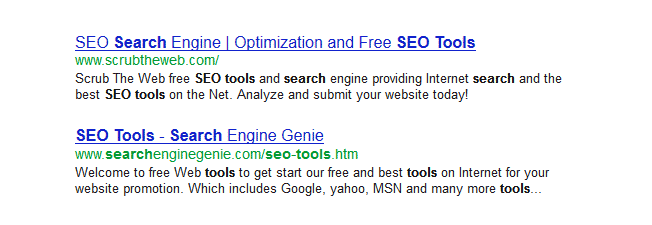10 Title Tag Tips That You Should Never Forget

Search engines still provide the best way for people to find what they’re looking for. When building your website, there are tactics to attracting a searcher. It’s not always just about the content, but more about how to get people interested in viewing your content.
The best way to drive search engine traffic to your website is to draw searchers in with the right title tag. So ask yourself:
What makes your title tag worthy to be clicked on?
1. Make sure you have filled out your title tags for EACH PAGE on your website

This is a common mistake. Nothing is more damaging to your search initiatives than to carelessly leave webpages without title tags.
A good rule of thumb is to list every URL on your website, then collect the title tag and meta description for each page. Lastly, go through and thoroughly optimize them. By not changing your title tags, search engines won’t be able to determine what your webpages are about.
2. Remember to keep your title tag under 60-70 characters
If you do a quick search on any of the major search engines, count how many characters are in the link. Chances are it will be up to about 60 characters before the rest of it gets cut off. Think about it, if you can’t read the entire title of a webpage, wouldn’t you be less likely to click into it?

The first result in the search above shows a title tag that is longer than 70 characters, so part of it is cut off.
The more keywords you have in your title tag, the more you dilute the keyword strength that your title tag is trying to pull.
3. Make sure your title tag is relevant to your content
Nobody wants to be tricked into thinking they aren’t where they want to be. If someone clicks into your webpage and discovers the content isn’t what they want, they’ll click that ‘back’ button faster than it took them to open their browser.
This hurts your bounce rate statistics and affects your credibility in the search engine. Plus, why would you want to ruin your ability to convert your visitors?
4. If you can, put your keyword(s) at the beginning of the title tag
A research study by Nielson Norman Group showed that people will read the first result, then less and less of the title tags for the following results. By giving readers maximized information within the first 11 or so characters, you’ll be giving your website a better shot at more traffic. Google, for example, puts more weight on the words at the beginning of the title tag.

For example: many websites have content about music. Many have content about Detroit. The title tag of this site contains “music” and “Detroit” within the first 3 words.
5. A creative (but still relevant) title tag will catch the attention of your target audience
Don’t be generic or Google or Yahoo will group your page with the other generic titles. If your page is about comparing Kobe Bryant to Michael Jordan, you don’t want your title tag to be “Kobe vs Jordan.” You might fare better with something like “Kobe Bryant Climbing Mount Jordan”.
There are many results when you search, so having a unique and attractive title tag will help drive more traffic to your site over another.
6. Don’t repeat keywords in your title tag

First of all, repeating keywords anywhere is one of the most ancient forms of search engine spam.
DON’T REPEAT KEYWORDS ANYWHERE ON YOUR SITE. You’re just asking to never show up in the search engines!
If you overcrowd your title tag with a keyword, search engines will have a harder time identifying what your website is about. You’d also be wasting your title tag space with redundant text.
If my site had the title tag “Hip Hop Artists Who Built Hip Hop” the search engine wouldn’t know what it is about. As you can see, the results didn’t pull up what was desired.
7. Your title tag doesn’t have to be a grammatically correct sentence
Your goal is to use the best keywords. If you can take out those words like ‘a,’ ‘an,’ ‘so,’ ‘he,’ ‘she,’ etc. and still have your title make sense, then do it. You have to remember that you have limited space and want to maximize its effectiveness, and these words don’t carry any keyword value.
8. Don’t repeat the same title tag across multiple webpages
If you have multiple pages on your website, you don’t want to duplicate the title tag for each page. This is called ‘keyword cannibalization.’ Search engines would think that the pages are about the same thing and wouldn’t be able to determine each page’s importance. Ideally, you want each page to be unique and have select keywords that you’ll end up using in your title tag.
9. Don’t put your Website name or brand first in your title tag
Especially if you’re a small, lesser-known company, you want people to know what your page is about to drive traffic there, which will lead to brand familiarity. It doesn’t hurt to have your website or brand in the title tag, just push it towards the end of the title tag.
The main reason for this is because search engines like Google weigh the beginning of the title tag with more “keyword importance”. Secondly, putting your brand name first will create keyword cannibalization.
10. When using punctuations, only use hyphens (-) or pipes (|)
This makes it easier to read when someone is scanning search results. Pipes can be used in place of commas and read better. It is also often used to separate the webpage’s content from the brand. For example:

Hyphens can be used to strengthen your keywords. By using a hyphen between words a search engine will show a variety of results. For example: If you put ‘hip-hop’ in your title tag, a search engine will associate your webpage with ‘hip hop’ and ‘hiphop’.
About the Author: Aaron Yip
Aaron is a native of San Francisco. You can find him on Linkedin or visit his Tumblr page.
